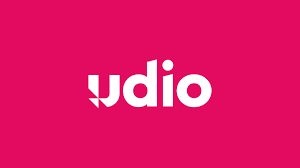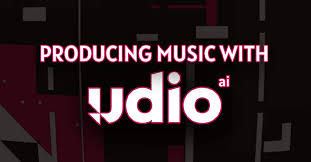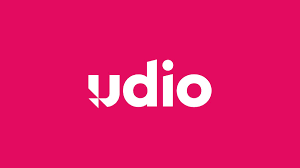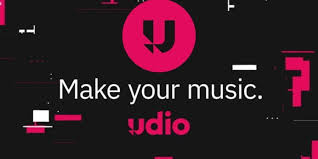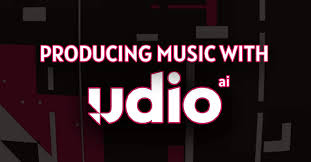Introduction: The Truth About AI Music and Copyright
As AI music generators like Udio become more popular among content creators, musicians, and brands, a pressing legal question arises: Is Udio music copyright free? If you're thinking about using AI-generated tracks in YouTube videos, TikTok ads, podcasts, or even commercial albums, understanding Udio's licensing and copyright policy is essential.
This in-depth guide breaks down how Udio music licensing works, what rights you really get, and the hidden risks you might not be aware of. We’ll also offer best practices for using Udio music safely in commercial and creative projects.

What Is Udio?
Udio is an AI music-generation platform launched in 2024 that allows users to create full-length songs using simple text prompts. Whether you're requesting a dreamy synth-pop ballad or a 90s-inspired rap anthem, Udio can generate studio-quality music within minutes.
Unlike traditional royalty-free libraries, Udio doesn’t rely on pre-recorded tracks. Instead, it uses large-scale machine learning models trained on massive datasets of audio to create music from scratch—or so it claims.
Is Udio Music Really Copyright Free?
The short answer: Not exactly.
Let’s break it down.
1. Ownership vs. Copyright
Udio’s terms of service say that users own the output they create, including for commercial use, as long as no copyrighted material is included in the prompt. That means you can:
Download your track
Publish it on streaming platforms
Use it in monetized content like YouTube, games, or advertisements
However, owning an output is not the same as owning copyright under U.S. law. The U.S. Copyright Office currently does not allow copyright protection for works created entirely by AI without meaningful human authorship. That means:
Your song might not be protected from being copied by others
You may not be able to enforce exclusive rights like licensing or DMCA takedowns
So while you can use Udio music, you may not be able to copyright it in the traditional legal sense.
2. Free vs. Paid Tiers: What's the Difference?
Free Tier Users: Must credit Udio when using generated tracks publicly. Example: “Created with Udio.”
Paid Tier Users: Can use generated music without attribution and for unrestricted commercial purposes.
This licensing flexibility makes Udio appealing, but it doesn’t override global copyright laws.
3. Can Udio Reuse Your Music?
Yes. Udio’s terms grant the company the right to use your inputs (prompts) and outputs (music) to improve its models or for promotional purposes. That means:
Udio might use your track for marketing or retraining
Other users could generate tracks similar to yours
You don’t get exclusive rights to your creation
Legal Gray Areas Around AI-Generated Music
While Udio allows commercial use, the legal landscape around AI music is still evolving:
No current copyright for AI-generated works in many jurisdictions
Major lawsuits (e.g., by Universal Music Group) are testing whether tools like Udio were trained on copyrighted music without permission
If courts rule that Udio’s model was trained unlawfully, the outputs could also be subject to infringement claims
In other words, the safety of Udio music may depend on future legal decisions beyond your control.
Real-World Use Cases: How Creators Are Using Udio
Despite the legal uncertainties, thousands of creators are already using Udio to:
Score YouTube intros and vlogs
Add original tracks to indie games
Generate theme songs for podcasts
Build demo albums for vocal overlays
Many are treating Udio music as a sketchpad or demo tool, then recreating the final versions with human input to claim full copyright protection.
Best Practices for Using Udio Music Safely
Here are five actionable tips:
Use Paid Tier for Commercial Projects
Avoid attribution hassles and get the most flexible usage rights.Don’t Include Copyrighted References in Prompts
Avoid typing in lyrics, artist names, or melodies that could trigger infringement.Document Everything
Save prompt texts, timestamps, and download records in case you need to prove ownership later.Treat Udio Music as Drafts for Final Production
Re-record tracks with human performance or production elements to qualify for copyright.Stay Updated on Legal Changes
As AI music lawsuits progress, be prepared to adjust your workflow or licensing strategy.
Conclusion: Is Udio Music Copyright Free?
So, is Udio music copyright free? Not exactly.
While you have broad usage rights—especially with a paid subscription—Udio music may not be copyrightable, and it certainly isn’t exclusive. You can use it freely, even commercially, but you cannot assume full legal protection or exclusivity like with traditional compositions.
Udio offers a powerful tool for rapid music generation, but creators should treat it with legal caution. If you're serious about long-term licensing, publishing, or building IP, consider enhancing Udio outputs with human creativity—or using them as demos rather than final masters.
FAQs
Can I monetize music made with Udio?
Yes. Paid users can monetize freely. Free users must credit Udio in their content.
Is Udio music safe for commercial use?
Generally, yes—but it depends on prompt content and your subscription plan. Also, be cautious of future legal rulings.
Does Udio give me exclusive rights to my song?
No. Udio retains the right to reuse your output and does not promise exclusivity.
Can I upload Udio tracks to Spotify or YouTube?
Yes, but be aware the song may not qualify for copyright or content ID protections.
Can I copyright my Udio music?
Likely not, unless you include significant human authorship or rework the track outside of AI generation.
Learn more about AI MUSIC

